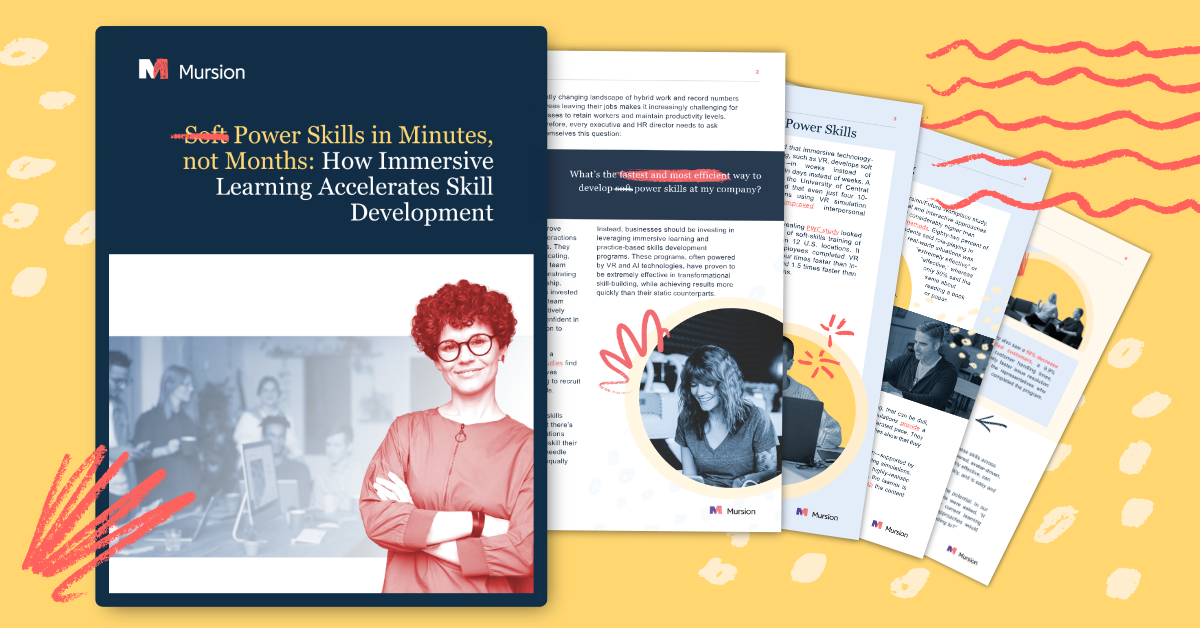DOWNLOAD OUR E-BOOK
Soft Power Skills in Minutes, not Months
How Immersive Learning Accelerates Skill Development
Learn solutions that help your workforce quickly develop soft skills so you maximize employee retention and productivity.
Produced by Mursion, Inc.

What’s the fastest and most efficient way to develop soft power skills? In the constantly changing landscape of hybrid work and record numbers of employees leaving their jobs, it’s a question just about every HR director is asking.
Our e-book delivers on that answer, explaining that solutions powered by VR and AI technologies have been proven to be extremely effective in transformational skill-building, while achieving results much faster than their static counterparts.
Learn how immersive learning can increase employee retention and productivity and why it’s quick to scale throughout your organization

What’s inside
Power Skills in Minutes, not Months”

- Why immersive learning is the fastest way to learn power skills
- What makes VR-enabled training so effective
- How this form of learning is quick to scale
- The business value behind shifting to immersive learning
- The future of power skills training across industries
